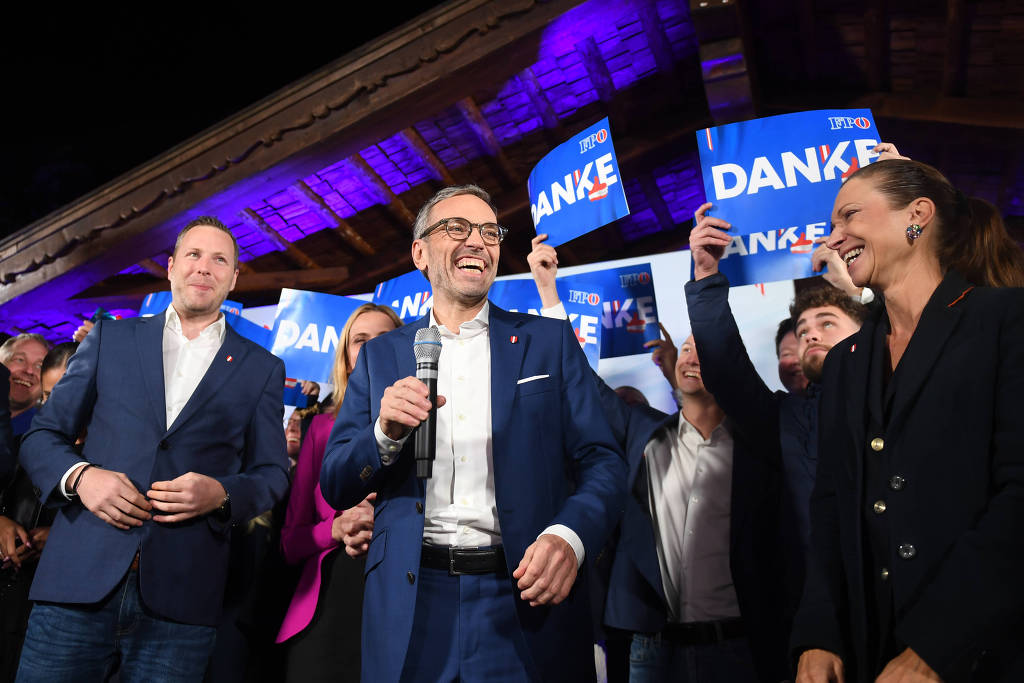
Published 09/30/2024 16:08 | Edited 09/30/2024 17:46
The Austrian Freedom Party (FPÖ) has become the fourth far-right party in Europe to threaten democratic normality in the space of a few months. This Sunday (29), the FPÖ received 28.8% of the valid votes for the Austrian parliament and obtained a favorable position to form a coalition for the first time since the Second World War.
The conservative Austrian People’s Party (ÖVP), led by current Chancellor Karl Nehammer, achieved 26.3% of the vote, followed by the center-left Social Democratic Party (SPÖ), with 21.1%.
In a context of the rise of radical parties in Europe, the party founded by former Nazis registered 13 points more than in the 2019 elections. The FPÖ is led by neo-Nazi Herbert Kickl who took over the leadership of the far-right party in 2021, when the party was criticized for corruption schemes.
Kickl uses terms that are veiled references to National Socialist language, takes pro-Russian positions, defends increasingly extreme positions on immigration and calls for an “organization of Austria”, in allusion to Hungarian leader Viktor Orbán.áq
The FPÖ was created from the Federation of Independents, a formation founded after the Second World War by former Nazis. The party’s first leader (1956–1958) was Anton Reinthaller, a former SS general.
With the result, Austria is the fifth country in Europe to see its far-right party shake up democratic normality.
In recent months, countries such as the Netherlands, France and Germany have also seen the vigor of far-right parties on the continent, which has seen voter dissatisfaction with issues such as migration and inflation grow.
In France, Marine Le Pen’s National Rally obtained the majority of votes in the election for the European Parliament, which made the country’s president, Emmanuel Macron, dissolve the National Assembly and call new elections. In the first round of early elections, RN obtained the majority of votes, which was only stopped in the second round because of the cordon sanitaire erected by republican forces.
In Germany, the Alternative for Germany (AfD) was the second most voted for the Brussels parliament, surpassing traditional opponents who are part of the German federal government coalition (SPD, FDP and The Greens).
In early September, German neo-Nazism won its first electoral victory since the end of the Second World War, after the Afd won a third of the votes in the state election in Thuringia and was second only to the CDU conservatives in Saxony.
In the Netherlands, in November, the Party for Freedom (PVV, its acronym in Dutch) received the most votes in the national legislative elections.
Source: vermelho.org.br

